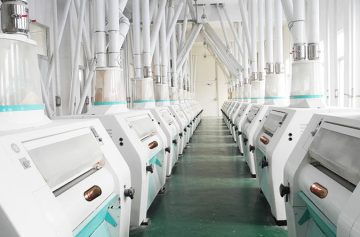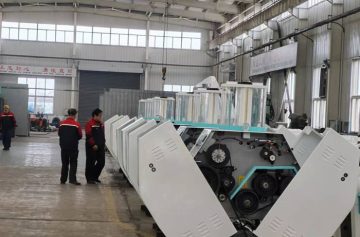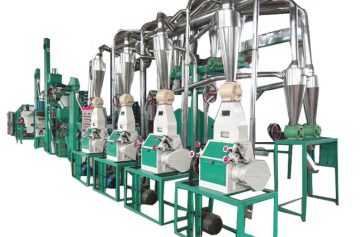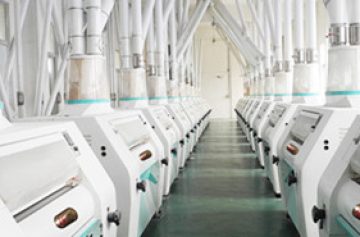In this rapidly changing era where stagnation means decline, large-scale flour milling machine manufacturers with advanced processing technologies will have broader development prospects and stronger competitiveness, thus capturing a larger market share. Simultaneously, the diffusion of new equipment and technologies from within enterprises also helps enhance their position in the industry.
Wheat, as an important component of our daily diet, requires strict quality control to ensure hygiene and safety, preventing threats to the personal safety of users. Improving the product quality of flour milling machinery requires multiple processes to increase overall output, thereby increasing the manufacturer’s profits.
Optimization of Production and Processing: Low Temperature and High Humidity Environment Control
When processing wheat, mill flour machine manufacturers recommend processing in a low-temperature environment to avoid excessive moisture evaporation and improve product quality. In the initial processing stage, a high-humidity environment should be maintained to ensure the wheat’s basic properties achieve long-term moisture retention.
Technical Parameters and System Management
Flour milling machinery requires operators to be familiar with the configuration of milling technical parameters and the configuration of screens in each system, taking into account the milling process and its characteristics, system settings, and the functions of each system. Simultaneously, it is essential to master the methods for measuring peeling rate and flour extraction rate to ensure the effectiveness of each milling stage.
Impurity Removal and Equipment Maintenance
Hazards and Removal of Impurities
During wheat processing, if impurities, especially hard impurities, are not thoroughly removed, it will not only reduce yield and affect product quality but also increase wear and tear on the milling machine for flour, shortening its lifespan and increasing the economic burden on the manufacturer. Therefore, flour milling manufacturers must recognize the hazards of hard impurities and take effective measures to avoid them.
Operator Training and Management
Operators at flour milling manufacturers should develop the habit of regularly inspecting and maintaining the components and structure of flour milling machinery. At the same time, it is necessary to continuously improve the quality of management personnel and conduct training for positions related to the management, operation, and maintenance of processing machinery. In conjunction with actual production, employees should be organized to carefully study operating procedures, understand the structure, performance, and uses of the equipment, to ensure the overall quality of flour milling machinery, reduce costs, and produce simple and efficient machinery, thereby improving the overall level of the entire corn processing industry.
Technical Support and Market Expansion
The development of a 20-ton flour-making machine requires the support of advanced technology. In the corn product industry, technology is key to market dominance. Companies like Henan Taixing Grain Machinery can design and manufacture conveying equipment of special models, specifications, sizes, and materials according to user needs, simplifying procedures, shortening intermediate processes, and achieving real manufacturer benefits, thus standing out in the fierce market competition.
Return to previous page
Technological Innovation and Market Competition Strategies in the Grain Flour Milling Machinery Industry
Comments are closed




